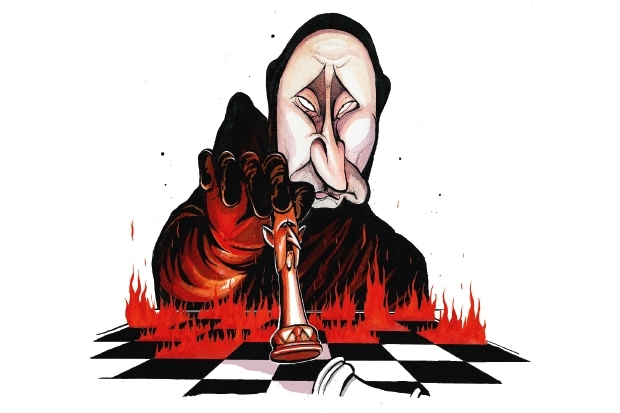No one comes that well out of the long-delayed Intelligence and Security Committee (ISC) Russia report. Well, maybe except for Vladimir Putin.
After all, while his Russia is clearly the villain – paranoid, determined to be ‘seen as a resurgent “great power”’ and hostile to the ‘Rules Based International Order’ – there’s a sense of a grudging recognition that it is at least good at what it sets out to do.
It is ‘one of the hardest intelligence challenges that there is,’ quick and decisive in its decision-making, ‘world-class’ in its capabilities. One could almost see it being called a ‘swashbuckling’ or ‘buccaneering’ ‘Global Russia.’
Set against this, while the ISC does recognise some real strengths and specific achievements, it makes the British government sound more Dad’s Army than James Bond. You couldn’t expect anything less, with sections called ‘Trying to shut the stable door’, ‘Did HMG take its eye off the ball?’ and ‘Less talk, more action?’
No one in HMG seems to want to take responsibility for political interference; there are multiple, competing strategies; the intelligence agencies critically reduced the attention they paid Russia in the 1990s and 2000s.
Remedies range from more resources for the intelligence services (rightly: Britain is, after all, still something of an intelligence superpower and this is a strength that needs to be preserved, not squandered) to a new Espionage Law and means to crack down on the dirty-money oligarchs and their advocates and facilitators here in the UK.
This is all perfectly sensible, but it will take time, money and political will. That requires a clear consensus that resisting Russia is a priority, that it poses a serious threat.
And this is perhaps the greatest weakness of the report. Time and again it refers to the Russian threat, but rarely nails down quite what it is.
There are, of course, the cyberattacks and the Litvinenko murder and the Skripal plot, which cannot be underplayed, but beyond it is often vague and relies on references to sometimes-dodgy reportage.
We are told that rich Russians splash their cash buying political contacts and cover, but never hear any suggestion that this actually had any impact.
Crucially, it ducks out of any meaningful comment about whether meddling affected the Brexit vote (‘The impact of any such attempts would be difficult – if not impossible – to assess, and we have not sought to do so’) and is similarly vague about the Scottish independence referendum.
If anything, the report underplays the challenge. Its admirably pithy summary of Russian aims fails to capture the sheer emotional strength of the Kremlin’s belief that it is engaged in a struggle for Russia’s soul and its birthright as a great power.
The Kremlin is on a war footing. That does not mean Putin wants or plans a shooting war with the West, collectively or piecemeal. Rather, it speaks to the mindset that puts seizing an opportunity above avoiding a danger, and is perfectly willing to lose battles so long as it wins the war.
That needs more than a bit more cash for the spooks, a new law, and a Whitehall shake-up. If there is a real threat – and I believe there is, but am disappointed the ISC could not address this directly – it needs a commensurate passion.
But it also needs to consider life after Putin. The cross-Whitehall Russia Strategy is criticised for still including measures to improve relationships with Russia, but this is as much part of a defence as any new law. Our beef is with Putin, his thugs, spies and oligarchs, not Russia – and we need to make sure that while we win today’s struggle, we don’t waste the chance for better relations with a post-Putin nation tomorrow.







Comments